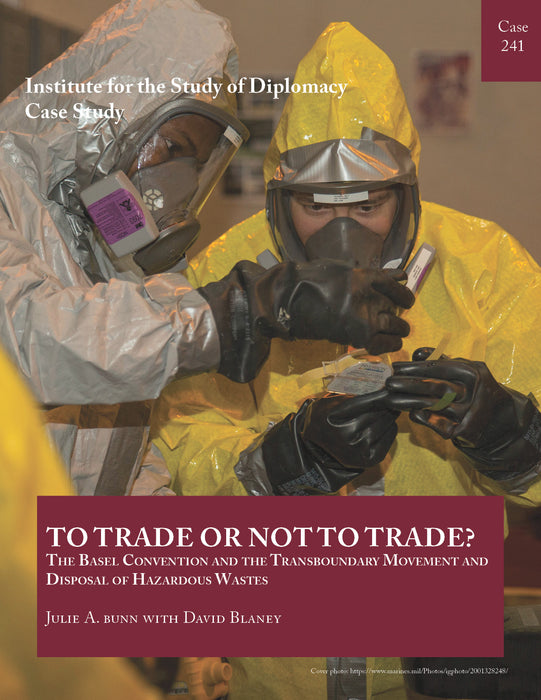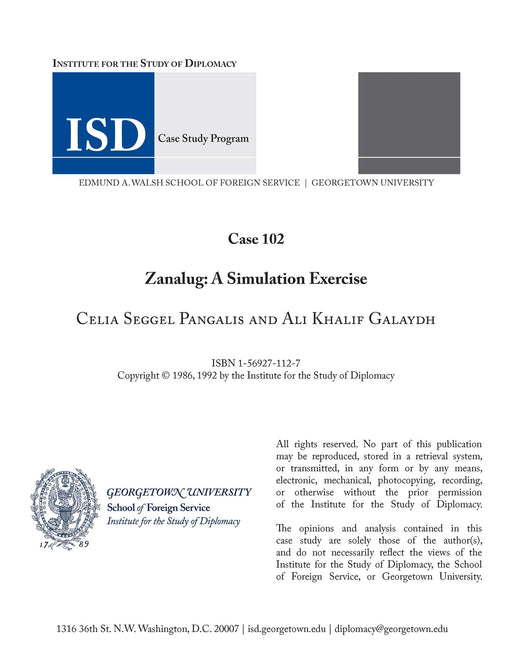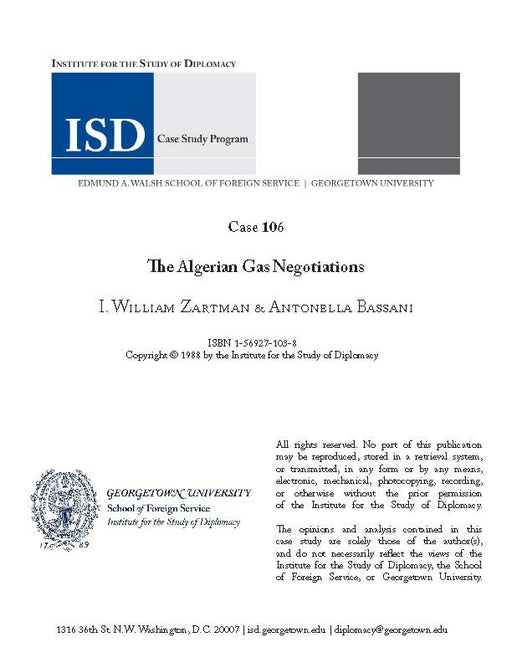Case 241 - To Trade or Not to Trade? The Basel Convention and the Transboundary Movement and Disposal of Hazardous Wastes
Bunn, Julia A. and David Blaney
On March 22, 1989, 105 states and the European Community (E.C.) signed the Basel Convention, which regulates the transboundary movement of hazardous wastes; the agreement entered into force three years later, and was strengthened in 1994 and 1997. While developing nations pushed for a total ban on such exports, most developed nations advocated a more incremental approach to the problem. This case study can be used to examine how, on a global scale, the free flow of wastes in response to economic incentives can lead to a disproportionate amount of waste being situated near poorer populations, particularly people of color; and the role of government regulations in shaping those incentives. It is well-suited for courses in international trade, environmental economics and environmental studies, or classes dealing with international organizations and global political economy.
This case is sufficiently rich in material that it can be used in a number of teaching contexts. Midway through a course in international trade, it could be used to help students apply their knowledge of neoclassical trade theory to hazardous waste--an unusual tradable good. In an environmental economics or environmental studies course, the case discussion can constitute part of a unit on "environmental racism." And in an international organizations or global political economy course, the study can be used to highlight several important issues about international regimes: their character and evolution, the role of interests and knowledge in shaping their development, the importance and limits of major powers in dictating the goals and rules they embody, the fragility of compliance, and the kind of evasive tactics employed once they are in place.



